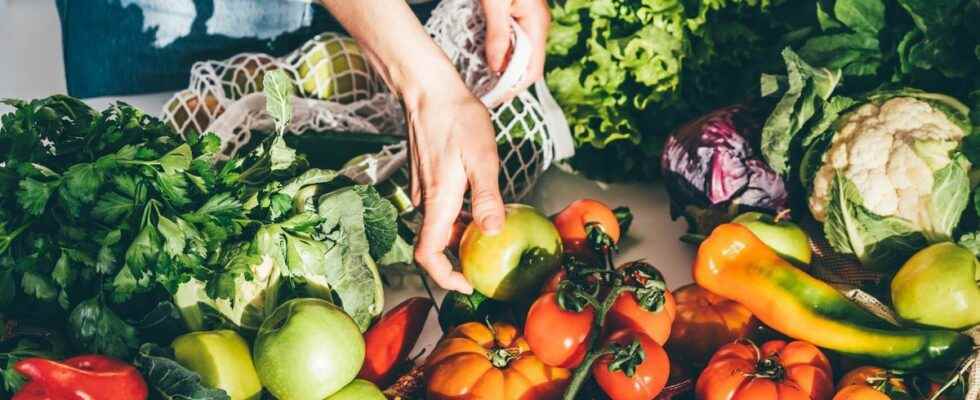Published on
Updated
Reading 3 mins.
Beef, foie gras and even breast milk… Many foods now go under the microscope to be produced in the laboratory. It is the plant’s turn to be cultivated in vitro. Explanations.
In vitro food technology: what is it?
Beef stem cells to produce a steak, but also oyster tissue to create new molluscs under the microscope, duck egg cells to produce synthetic foie gras, or even mammary gland cells to produce breast milk… In-vitro food technology has come a long way since the tasting of the very first laboratory-made burger in 2013, in London. For nearly ten years, this technique, which consists of feeding a cell with carbohydrates, lipids and amino acids to multiply it, has intended to provide solutions to environmental problems. Start-ups that engage in this approach seek the argument of the carbon footprint of the meat industry to justify their activity. Others warn of the too high environmental cost of some of our daily foods to provide an in vitro alternative; this is the case of the laboratory coffee developed by a team of Finnish scientists, but also of the confectionery brand Fazer, also from the country of Santa Claus, to launch the production of in vitro chocolate. In Israel, we have gone so far as to cultivate yeasts, like those of a baker, in order to extract dyes of natural origin, rejected by the cells during the fermentation process, thus providing an alternative to synthetic additives.
In the basket of our daily lives, there are foods that had not yet been the guinea pigs of in vitro food culture: plants. Founded at the very beginning of the year, the start-up Novella joins the ranks of the Israeli food tech, which has already made a name for itself in plant-based alternative proteins with 160 million dollars invested in this type of business in the first half of 2022 alone, according to a report by the Good Food Institute. While vertical vegetable production systems have been providing a solution for several years to the needs of feeding a growing urban population without expanding agricultural land, Novella’s activity aims to reduce the waste generated by agriculture used for purposes other than agriculture. eating. In other words, it is no longer a question of growing the whole plant, but only part of the leaves, stems or any other interesting plant part.
Booming laboratory food production
The objective is not to propose a new way of harvesting fruits and vegetables, but rather to provide another answer to the nutraceutical industry, which uses the properties of foods to prevent certain infections or improve well-being. . In this section, we count on food supplements, folic acid prescribed to women wishing to become pregnant or even so-called functional drinks. Stimulated by the pandemic which prompted consumers to protect themselves from infections or viruses by taking vitamin cures, this market is booming. According to a report by Global Market Insights, it generated a record turnover of nearly 400 billion dollars internationally in 2021. And its annual growth is estimated at 5.2% by 2030. , under the effect, among other things, of the increase in the metabolic syndrome, which corresponds to the combination of several health disorders of lipid, carbohydrate or vascular origin with excess weight. We are talking in particular about the increased risk of type II diabetes and cerebrovascular accidents (CVA).
Kale in vitro: the first vegetable in the test phase
To get started, the Israeli company set its sights on kale, given its popularity due to its antioxidant and vitamin density. Everything happens in a bioreactor for the cells to multiply. In the end, a powder is obtained, in which there are nutrient-rich plant tissues. Researchers are focusing in particular on the need to extract vitamin K from the famous detox vegetable and its carotenoid composition, an antioxidant capable of reducing macular degeneration.
